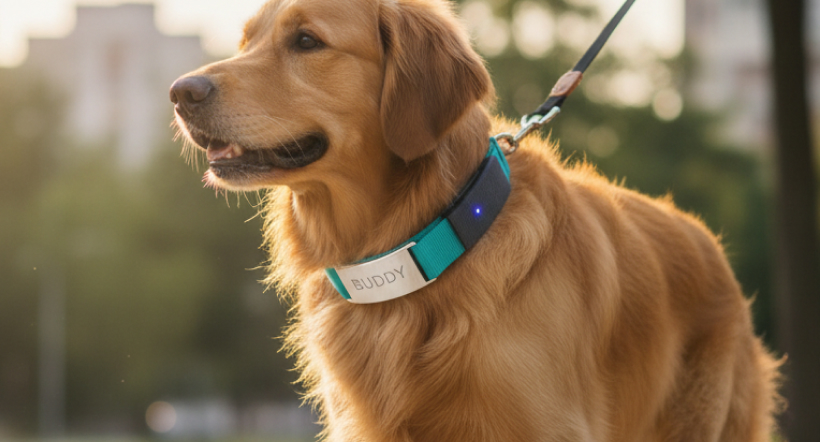Pet and animal
DIY Homemade Organic Treats for Happy, Healthy Pets

Introduction
As pet owners, we all want the best for our furry friends, and that includes what they eat. Homemade organic treats are a great way to ensure that your pets get healthy, safe, and natural snacks. Store-bought treats can often be filled with artificial preservatives and chemicals, but when you make treats at home, you have full control over the ingredients. Plus, making DIY homemade organic treats can be fun and rewarding!
In this article, we will explore some easy recipes for organic treats for pets that are not only healthy but also incredibly tasty. Whether you have a dog, cat, or even a rabbit, there are plenty of options to choose from. Let’s dive into the world of homemade organic treats and how they can benefit your pets!
What Are Organic Pet Treats?

Image by: Yandex.com
Organic pet treats are made from natural, high-quality ingredients that are free from harmful chemicals, pesticides, and preservatives. These treats are not only healthier for your pets but also support sustainable farming practices and the environment. By choosing organic ingredients, you can ensure that the treats you’re giving your pets are safe, nutritious, and full of beneficial vitamins and minerals.
When making your own homemade organic treats, you can choose the freshest, most natural ingredients available, making it easier to cater to your pet’s specific dietary needs.
Simple DIY Organic Treat Recipes

Image by: Yandex.com
1. Peanut Butter and Oat Biscuits
Ingredients:
- 1 cup organic oats
- 1/2 cup organic peanut butter (unsweetened, no xylitol)
- 1/4 cup water
- 1/4 cup coconut flour
Instructions:
- Preheat the oven to 350°F (175°C).
- In a mixing bowl, combine the oats, peanut butter, water, and coconut flour.
- Mix until a dough forms. If the dough is too sticky, add a little more coconut flour.
- Roll the dough out on a floured surface and cut into shapes using a cookie cutter.
- Place the biscuits on a baking sheet and bake for 15-20 minutes, or until golden brown.
- Let the biscuits cool completely before serving them to your pet.
2. Pumpkin and Carrot Treats
Ingredients:
- 1/2 cup organic pumpkin puree
- 1/2 cup grated organic carrots
- 1 egg
- 1/2 cup coconut flour
- 1/4 cup oat flour
Instructions:
- Preheat the oven to 350°F (175°C).
- In a mixing bowl, combine the pumpkin puree, grated carrots, and egg.
- Add the coconut flour and oat flour and mix until a dough forms.
- Roll out the dough and cut into small shapes.
- Place the treats on a baking sheet and bake for 20-25 minutes.
- Allow the treats to cool before giving them to your pet.
3. Apple and Banana Bites
Ingredients:
- 1 organic banana, mashed
- 1/2 cup organic applesauce (unsweetened)
- 1/2 cup coconut flour
- 1/4 cup oat flour
- 1 egg
Instructions:
- Preheat the oven to 350°F (175°C).
- In a mixing bowl, combine the mashed banana, applesauce, and egg.
- Slowly add the coconut flour and oat flour, mixing until combined.
- Roll into small balls and flatten them slightly with your hands.
- Place on a baking sheet and bake for 12-15 minutes or until golden brown.
- Let the bites cool before serving them to your pet.
4. Sweet Potato Chews
Ingredients:
- 1 organic sweet potato
Instructions:
- Preheat the oven to 250°F (120°C).
- Slice the sweet potato into thin, long strips.
- Place the strips on a baking sheet lined with parchment paper.
- Bake for 2-3 hours, or until the sweet potato becomes crispy.
- Let the chews cool completely before giving them to your pet.
Tip: Sweet potato recipes like baked sweet potato and roasted sweet potato chews are great for dogs to chew on for a longer time, promoting dental health.
Comparative Table: Homemade Organic Pet Treat Recipes
| Recipe | Main Ingredients | Best For | Preparation Time |
|---|---|---|---|
| Peanut Butter and Oat Biscuits | Organic certified gluten free oats, peanut butter, coconut flour | Dogs, energy boost, tasty snack | 30 minutes |
| Pumpkin and Carrot Treats | Organic pumpkin, carrots, coconut flour | Dogs, digestion, vitamin-rich | 35 minutes |
| Apple and Banana Bites | Organic banana, applesauce, coconut flour | Dogs, natural sweetness, easy to make | 30 minutes |
| Sweet Potato Chews | Organic sweet potato | Dogs, long-lasting chew, dental health | 2-3 hours (slow bake) |
Conclusion
Making your own DIY homemade organic food treats is a wonderful way to provide your pets with healthy and tasty snacks. Not only are you giving them high-quality ingredients, but you’re also customizing the treats to suit their specific dietary needs. Whether you have a dog, cat, or even a rabbit, there are plenty of simple recipes to try. Homemade treats are fresher, healthier, and free from artificial additives, ensuring that your pets stay happy and healthy.
Art /Entertainment
Helen Martin: A Trailblazer in African American Theater
Pet and animal
Dog Welfare: Promoting Health, Happiness, and Humane Care for Dogs

Introduction
Dogs have been our loyal companions for thousands of years, offering friendship, love, and protection. Yet, millions of dogs worldwide face neglect, abandonment, and abuse every day. Ensuring dog welfare is crucial not only for the well-being of dogs themselves but also for the health and safety of the communities they live in. This blog explores the importance of dog welfare, key practices, and how organizations and individuals can make a difference.
What Is Dog Welfare?
Dog welfare refers to the physical, emotional, and social well-being of dogs. It encompasses providing adequate food, clean water, shelter, medical care, protection from cruelty, and social interactions. A dog’s welfare is not just about survival—it’s about ensuring a life of dignity, safety, and happiness.
Good dog welfare practices also include proper training, mental stimulation, and ensuring dogs are free from unnecessary stress or harm. Communities and pet owners play a vital role in achieving this.
Why Dog Welfare Matters
Ensuring dog welfare is critical for several reasons:
- Health and Longevity: Dogs with proper care live longer, healthier lives. Access to vaccinations, regular veterinary check-ups, and a balanced diet reduces the risk of diseases and infections.
- Safety: Neglected or stray dogs can develop behavioral problems due to fear, anxiety, or hunger. By focusing on dog welfare, communities reduce the risk of bites, attacks, and the spread of disease.
- Companionship and Emotional Bonding: Dogs are social animals who thrive on attention and care. Good welfare ensures they can form positive relationships with humans and other animals.
- Ethical Responsibility: As caregivers, humans have a moral obligation to protect animals from suffering. Supporting dog welfare aligns with humane and compassionate values.
Key Components of Dog Welfare

Image by: Yandex.com
1. Adequate Shelter and Comfort
A safe, clean, and comfortable environment is the foundation of dog welfare. Dogs need protection from extreme weather, adequate space to move freely, and a secure area where they feel safe. Whether in homes, shelters, or community care facilities, proper housing significantly reduces stress and illness.
2. Nutrition and Clean Water
Proper nutrition is essential for maintaining a dog’s health. A balanced diet that includes proteins, vitamins, and minerals supports growth, energy, and immunity. Alongside food, constant access to clean drinking water is crucial. Malnutrition and dehydration are major causes of illness in neglected dogs.
3. Medical Care and Vaccination
Regular veterinary check-ups, vaccinations, and timely treatment for injuries or illnesses are integral to dog welfare. Preventive care such as deworming, flea control, and neutering/spaying programs not only improves individual health but also helps manage the stray dog population ethically.
4. Mental and Physical Stimulation
Dogs require exercise, play, and social interaction to maintain mental and physical health. Boredom and isolation can lead to destructive behavior, anxiety, or depression. Activities like walking, games, training, and socializing with other dogs promote well-being and happiness.
5. Protection from Cruelty and Neglect
One of the most critical aspects of dog welfare is protecting dogs from abuse. Stray, abandoned, or working dogs may face cruelty, overwork, or neglect. Enforcement of animal welfare laws, public awareness campaigns, and reporting cases of abuse are essential steps in safeguarding dog welfare.
The Role of Dog Welfare Organizations
Non-profit organizations, rescue groups, and dog welfare societies play a crucial role in improving the lives of dogs:
- Rescue Operations: Saving abandoned, injured, or abused dogs from streets, unsafe homes, or neglectful situations.
- Medical Treatment: Providing veterinary care, vaccinations, surgeries, and rehabilitation for rescued dogs.
- Adoption Programs: Rehoming rescued dogs into loving families, reducing stray populations, and promoting responsible pet ownership.
- Awareness Campaigns: Educating the community about ethical treatment, sterilization, feeding programs, and reporting cruelty.
- Community Support: Establishing feeding stations, shelters, and volunteer programs to ensure ongoing dog welfare in urban and rural areas.
Organizations like Kannan Animal Welfare Foundation and similar dog NGOs lead by example, showing how structured, compassionate efforts can transform the lives of countless dogs.
How Individuals Can Promote Dog Welfare
1. Adopt, Don’t Shop
Choosing to adopt rescued dogs supports the principles of dog welfare. Adoption reduces the demand for puppy mills and helps provide abandoned dogs with loving homes.
2. Volunteer and Support Shelters
Volunteering time at local dog shelters or rescue organizations can make a huge difference. Activities include feeding, grooming, walking, cleaning, or assisting in rescue operations. Donations of food, medicine, or funds are also vital.
3. Spay and Neuter Pets
Responsible pet owners should sterilize their dogs to prevent overpopulation. This reduces the number of stray dogs and decreases suffering caused by hunger, disease, and neglect.
4. Report Cruelty
Communities play an essential role in enforcing dog welfare. Reporting cases of abuse or neglect to local authorities or animal welfare organizations ensures that dogs in distress receive timely help.
5. Raise Awareness
Educating friends, family, and neighbors about the importance of dog welfare, ethical treatment, and responsible ownership spreads a culture of compassion and care.
Conclusion
Dog welfare is not just about providing food and shelter—it’s about creating an environment where dogs are safe, healthy, and happy. Every small effort, from adopting a rescued dog to volunteering at a shelter, contributes to a larger movement that protects vulnerable animals.
By supporting dog welfare initiatives, whether through NGOs, community programs, or personal responsibility, we ensure that dogs receive the love, care, and respect they deserve. When dogs thrive, communities thrive—because compassion towards animals reflects the humanity of society itself.
Business
Custom Dog Collar Guide: Style, Safety and Business Trends

Introduction
The pet care industry has grown rapidly over the past decade, becoming a multi-billion-dollar lifestyle market. A perfect example of this change is the custom dog collar. What used to be a simple tool for identification and leash attachment is now a statement piece. Today’s collars reflect a dog’s personality, the owner’s values, and also provide important safety features.
The Evolution of Dog Collars in Modern Pet Care
Dog collars have evolved from basic leather straps to personalized fashion accessories, reflecting how people now see their pets as family. This change has created many opportunities for businesses to innovate in the custom dog collar market.
Traditional collars were mainly for control. Today’s custom collars must do more: be durable, comfortable, safe with features like breakaway or reflective elements, and stylish to match the dog and owner. Meeting all these needs has created a whole industry focused on balancing function and fashion.
The Functional Foundation: Safety First
Before looking good, a custom dog collar must keep the dog safe and comfortable. This drives the use of better materials and ergonomic designs. Collars are made from leather, nylon, biothane, and recycled eco-friendly materials. Leather is durable and ages well, nylon is lightweight and easy to clean, and biothane is waterproof and long-lasting.
Functional features include quick-release buckles, reflective stitching for night safety, and padded interiors for sensitive dogs. Some collars even have GPS trackers, LED lights, or health sensors, adding high-tech safety and convenience.
Proper sizing and adjustability are also important. A good fit prevents escapes and avoids discomfort or injury. Custom collar makers provide guides and multiple adjustment points for growing puppies or uniquely shaped dogs. This focus on function separates quality collars from mass-produced ones.
Fashion Meets Personalization
While function is important, fashion drives much of the custom dog collar market’s growth. Many pet owners see collars as a way to show their dog’s personality and their own style. This gives designers and makers lots of creative freedom.
Personalization goes far beyond adding a dog’s name. Today’s collars include hand-tooled leather, fabric prints, gemstones, studs, beadwork, and sophisticated color combinations. Some even match the owner’s style.
Social media has made fashion even more important. Instagram and TikTok pets show off stylish collars, inspiring owners to buy statement pieces. Collars have become a way to make a social statement and start conversations.
Seasonal and themed collars are also popular. Halloween, holiday, patriotic, sports, and pop culture designs let owners celebrate events with their pets. Limited edition releases encourage repeat purchases and build collector interest.
The Business Model: From Craft to Commerce
The custom dog collar market has many business types, from solo artisans on Etsy to large pet retailers. This variety gives entrepreneurs many ways to enter the market and offers different options for customers.
- Small makers: Focus on craftsmanship with hand-sewn or leather collars. These are one-of-a-kind, often priced higher, and valued for their quality and personal story.
- Mid-sized businesses: Offer semi-custom collars where customers pick colors, patterns, hardware, and personalization. This balances customization with faster production, often using digital tools to preview designs.
- Large retailers: Partner with manufacturers for high-volume personalization using laser engraving, digital printing, or embroidery. These collars are less artisanal but more affordable and widely available.
This range of business models lets consumers choose collars based on style, price, and level of customization.
Material Innovation and Sustainability
Environmental awareness is becoming important in the custom dog collar industry. Many customers want products that match their values, so manufacturers are using sustainable materials like recycled plastic, organic cotton, vegetable-tanned leather, and hemp.
Some companies use creative eco-friendly materials like recycled ocean plastic, old climbing ropes, or plant-based leathers made from cork or mushrooms. These collars appeal to consumers who want stylish, durable products that are better for the environment.
Sustainability also includes how collars are made. Many makers focus on local production to reduce shipping emissions, use zero-waste cutting methods, or donate scraps to animal shelters. These practices tell a strong brand story and attract environmentally conscious buyers.
Technology Integration: The Smart Collar Revolution
Custom dog collars are becoming more high-tech. Smart collars can track activity, monitor health, or show GPS location, and they’re no longer just niche products. Customization keeps these collars stylish, with options like interchangeable bands and personalized designs so the tech doesn’t look boring or clinical.
Some collar makers work with tech companies to fit tracking devices into their designs. Others build the technology directly into the collar. These collars combine fashion and function, giving pet owners products that look great while keeping their pets safe and healthy.
Marketing Custom Dog Collars: Building a Brand
Marketing custom dog collars works best when you understand the bond between pets and their owners. Successful brands show that collars aren’t just products—they celebrate the special relationship between a person and their dog. Sharing photos of happy dogs wearing collars, especially from customers, builds trust and community.
Social media, especially Instagram and Pinterest, is key for marketing. Hashtags, influencers, and engaging with pet communities increase visibility and sales. Many brands encourage customers to share stories and photos, turning buyers into brand ambassadors.
The custom dog collar market is growing as more people treat pets like family. Customers want collars that are reliable, expressive, and emotionally meaningful. By combining good design with creative customization, this market has become a strong niche in the pet industry.
The future of custom dog collars is bright. New materials, designs, and even technology will keep the product exciting. Success comes from making collars that are safe and comfortable for dogs, while also stylish and appealing to owners.
Check the Other Blogs
-
Business3 years ago
Cybersecurity Consulting Company SequelNet Provides Critical IT Support Services to Medical Billing Firm, Medical Optimum
-
Business3 years ago
Team Communication Software Transforms Operations at Finance Innovate
-
Business3 years ago
Project Management Tool Transforms Long Island Business
-
Business2 years ago
How Alleviate Poverty Utilized IPPBX’s All-in-One Solution to Transform Lives in New York City
-
health3 years ago
Breast Cancer: The Imperative Role of Mammograms in Screening and Early Detection
-
Sports3 years ago
Unstoppable Collaboration: D.C.’s Citi Open and Silicon Valley Classic Unite to Propel Women’s Tennis to New Heights
-
Art /Entertainment3 years ago
Embracing Renewal: Sizdabedar Celebrations Unite Iranians in New York’s Eisenhower Park
-
Finance3 years ago
The Benefits of Starting a Side Hustle for Financial Freedom


































